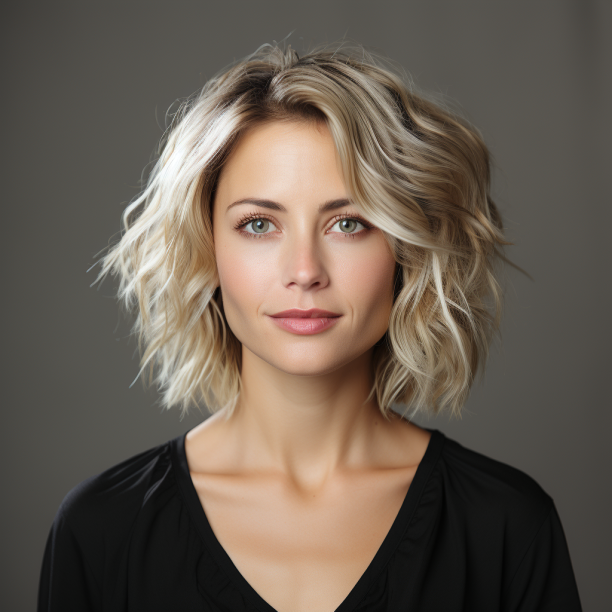Vitamin A

It is recommended that adults above 14-years-of-age consume between 700-900 micrograms of Vitamin A per day. This vitamin is essential for both hair and skin health because it helps prevent wrinkles and aids in hair growth. To get more Vitamin A in your diet, eat sweet potatoes, carrots, kale, butternut squash, and sweet bell peppers.
Vitamin B2

Vitamin B2 (Riboflavin) is highly important for skin health because it works to repair skin injuries, dermatitis, and even rosacea. The recommended amount for women and men over 18 is 1.1 milligrams and 1.3 milligrams respectively. To get your fill, eat goat cheese, almonds, pistachios, oily fish, beef, and lamb.
Vitamin B3

Vitamin B3 (Niacin) is essential in preventing redness and bruising of the skin. Men should consume 16 milligrams a day, women should consume 14 milligrams a day, and pregnant women need 18 milligrams a day. You can obtain your daily requirement by eating poultry, fish, eggs, and leafy greens.
Vitamin B7
Vitamin B12

Vitamin B12 is one of the most important vitamins for your overall health, and when it comes to your appearance, it aids in speeding up hair growth. Adults over 14 need 2.4 micrograms a day, and pregnant females need 2.6 micrograms a day. Clams, smoked salmon, tuna, crab, tofu, and fortified cereals are the best way to meet your vitamin B12 goals.
Vitamin C
Vitamin D
Vitamin E
Vitamin K1
Vitamin K2
Vitamin B5

Also known as pantothenic acid and panthenol, vitamin B5 has been known for its skin-hydrating properties. So if you’re looking for a vitamin that gives you fresh, dewy, hydrated skin, then find a moisturizer with vitamin B5 in it. To get more vitamin B5, you can add foods like mushrooms, sweet potatoes, milk, lentils to your menu.
Fern Extract

For almost 20 years, fern extract has been researched for its skin-saving abilities. Some studies have even found that it provides protection from ultraviolet rays. In addition, if you suffer from eczema, psoriasis, or vitiligo, fern extract is known to help ease the symptoms. You can find fern extract vitamins at basically any grocery store.
Iron
Omega-3

Omega-3 is a vitamin found in fatty fishes like salmon, mackerel, and sardines, but you can also take daily vitamins for it. Omega-3 is well-known for its anti-aging properties as it helps prevent wrinkles in your skin. In addition to its anti-aging effects, it can also help boost your hairline and keep your scalp from flaking.
Collagen

Collagen is another one of those incredible age-defying vitamins. If you’re 30 or older and you think your complexion is changing due to your age, then it’s highly recommended you try this vitamin. So if you’re looking to defy-age, increase your collagen levels, and help skin elasticity, then this might be the vitamin for you. To get more collagen through your diet, make sure to incorporate foods like beef, chicken, eggs, and beans into your daily menu.
Magnesium

Do you suffer from hormonal breakouts? Well, it might be a good idea to ask your doctor about taking magnesium supplements. Magnesium is known for helping improve your skin’s overall appearance, but it’s especially good at reducing acne and other skin disorders. You can find magnesium in a lot of easy places like in dark chocolate, avocados, nuts, and in some fatty fishes like salmon and mackerel.
Zinc

Similar to magnesium, zinc is just the thing for those annoying acne breakouts. Zinc is a super-powerful antioxidant that is required for your skin to function as normal. Zinc is also good for healing damaged skin, especially on your scalp. Looking to add some zinc to your diet? Make sure to incorporate foods like shellfish, nuts, eggs, and dairy into your diet.
Selenium

Selenium is a great vitamin that can help control inflammatory diseases of the skin like psoriasis and eczema. Not only that, but it’s also an incredibly powerful antioxidant that can help with asthma and prevent some forms of cancer. However, you have to be careful not to take too much of this vitamin, or it could have adverse effects. Make sure you talk to your doctor before starting this vitamin. You can also find healthy amounts of selenium in foods like brazil nuts, tuna, oyster, and pork.
Curcumin

Honestly, is there anything that curcumin can’t do? Turmeric is a potent spice that contains the antioxidant curcumin. Turmeric and curcumin are incredibly beneficial to a wide variety of skin issues such as acne and is also known to have anti-aging properties. Curcumin is primarily found in the spice turmeric which can be found in a lot of Asian cuisines.
Keratin

You’ve probably heard of this one, but keratin is one of the most important vitamins for your hair, nails, and skin. Keratin makes your hair seem fuller and shinier. If you have curly hair, then it helps calm frizziness, which makes your hair easier to style. It helps make your nails stronger and prevents cracking and splitting, keratin is also great for making your skin stronger and better at retaining water. If you're wanting to add a little more keratin to your life, try incorporating food such as blueberries, almonds, oysters, and red meats.
 Author
Rachel Downs
Last Updated: July 23, 2025
Author
Rachel Downs
Last Updated: July 23, 2025






